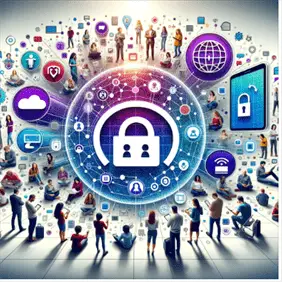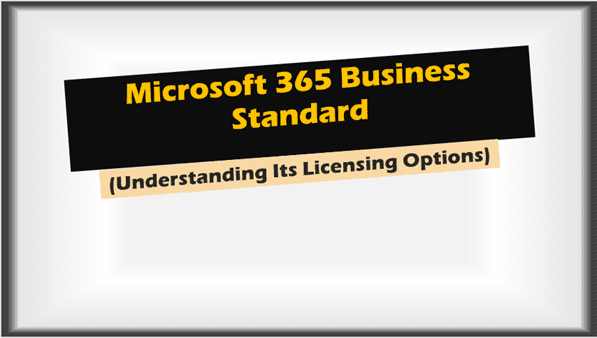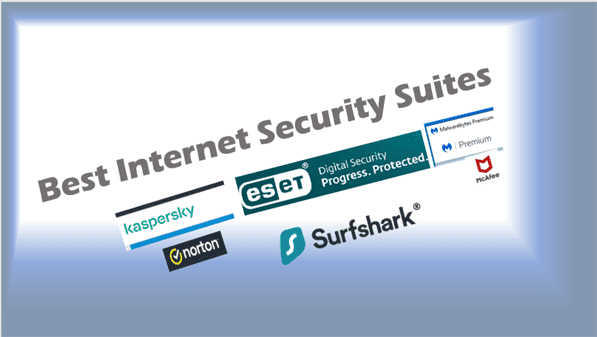Remote Working Cyber Security Tips: Your No-Fluff Guide to Staying Safe
Remote Working Cyber Security Tips.
Are you working from home now? Worried about keeping your data safe? I get it. Cyber threats are real, especially when you’re not in the office. This isn’t some “techy jargon” lecture. It’s about simple, actionable remote working cyber security tips to protect your business and yourself. Let’s dive in, no BS.
Remote work is convenient but opens doors to cyber threats. To stay safe, use strong, unique passwords and a reliable antivirus, keep all software updated, and secure your home Wi-Fi. For extra protection, use multi-factor authentication (MFA) and a VPN, and be cautious of phishing emails. Employers should implement a clear security policy, train staff regularly and use zero trust access to protect their company. Want to learn all the necessary steps for securing your remote setup and preventing data breaches? Read on for the full guide.
The Real Risks of Remote Work: Why You Should Pay Attention
Remote work is great, right? But it’s opened a can of worms for security teams. More devices, more connections, and less direct oversight mean more ways for hackers to get in. Here’s the deal:
- Bigger Target: More devices and networks to secure – your “attack surface” just got huge
- Data Slip-Ups: Less control over how people handle sensitive info
- Compliance Mess: Data rules get tricky when work moves around
- Phishing Frenzy: Remote workers are more likely to click dodgy links
- AI Attacks: Smart hackers are using AI to trick you
- Home Devices: Personal devices and networks are often weak points
- Video Issues: Webcam hacking and “Zoombombing” still happen
- Chat Vulnerabilities: Hackers lurk in chat platforms too
Common Threats to your cyber security when remote working:
* Phishing attacks - dodgy emails trying to steal your info
* Malware - Viruses, ransomware and other nasties
* Weak passwords - easy to guess, or reused
* Unsecured Wi-Fi - public connections are a hacker's playground
* Data breaches - lost, leaked, or stolen data
* Compromised devices - infected laptops and phones
Remote Working Cyber Security Tips for YOU: Simple Steps
Forget the complicated stuff. Here’s how to stay safe:
Nail the Basics – easy changes, big impact
- Passwords: Use strong, unique passwords for everything.
- No “password123” or your pet’s name, alright?
- Consider a password manager to handle the complexity.
- Antivirus: Get it, use it, and keep it updated.
- It’s like having a security guard for your computer.
- Updates: Update your software and operating systems.
- They patch up security holes that hackers exploit.
- Wi-Fi: Secure your home Wi-Fi.
- Password-protect it and update your router’s firmware.
- Avoid public Wi-Fi like the plague or use a VPN.
Level Up Your Security – adding more layers
- Multi-Factor Authentication (MFA): Use it everywhere you can.
- It adds an extra layer of security with a code or app.
- Don’t use SMS for codes – authenticator apps are safer.
- Secure Channels: Encrypt your communications.
- Use encrypted tools for email, messaging, and video calls.
- Phishing Smarts: Stay vigilant about dodgy emails.
- If it looks suspicious, don’t click it.
- Train yourself to spot these scam emails
- Device Encryption: Turn it on to protect your data.
- BitLocker for Windows, FileVault for Mac.
- VPN (Virtual Private Network): Use it for extra security.
- It’s like a secure tunnel for your internet connection.
- Central Storage: Use company servers instead of saving files locally.
Extra Precautions – common sense goes a long way
- Separate Devices: Don’t mix work and personal stuff on the same device.
- Private Space: Work in a spot where others can’t see your screen.
- Lock your devices when you’re not using them.
- Video Calls: Secure your video meetings.
- Use passwords, waiting rooms, and lock meetings
- Be aware of what others can see, especially your background.
- Webcam Cover: Cover your webcam when it’s not in use.
- Unattended Devices: Never leave your laptop or phone out in the open.
- Wipe Before Selling: Always return devices to factory settings before you dispose of them.
Remote Working Security Best Practices for Employers: Setting Your Team Up for Success
As an employer, you’re responsible for creating a secure remote work setup. It’s not just about your network, it’s about your people.
Core Security Measures – build a strong foundation
- Cybersecurity Policy: Have a clear, documented policy.
- Include a BYOD policy if employees use their own devices.
- Set rules about using company laptops
- Training: Train your staff regularly, not once and done.
- Focus on spotting phishing scams.
- Zero Trust: Verify every user and device.
- Give access only when necessary, and only to what’s needed
- User Behavior Analytics (UBA): Monitor for suspicious activities.
- Data Protection: Protect your important data.
- Educate your people on data security.
- Vulnerability Management: Address risks quickly.
- Cloud Setup: Ensure your cloud configurations are safe.
- Passwords: Make sure employees use strong passwords
- Password Managers: Provide a company-wide solution
- Access Control: Give access based on roles
- Cyber Hygiene: Maintain good “online health” across devices and systems
- Monitor Performance: Use security metrics to monitor adherence to your policies.
- Cloud Migration: Move business apps to the cloud
- VPNs: Require employees to connect over VPNs
Managing Remote Devices – control, monitor and keep them secure
- Remote Device Management: Monitor and update devices remotely.
- Antivirus: Make sure antivirus is up to date.
- Auto Updates: Set up automatic updates for operating systems.
- Back-Ups: Ensure data is backed up regularly.
- Encryption: Make sure all company devices are encrypted.
- Admin Rights: Remove admin rights from user profiles
Specific Employer Security Steps – beyond the basics
- Monitor Vendors: Check the security of your third-party vendors.
- Email Security: Implement strong email security practices.
- HSTS: Ensure web applications use HSTS.
- Relationships: Create opportunities for remote workers to connect and meet in person.
FAQs – Your Burning Questions Answered
What’s the biggest threat to remote working security?
Phishing attacks and weak passwords are the two big offenders. Train your team to spot scams and enforce strong passwords.
Should I use public Wi-Fi when working remotely?
Avoid it if you can, because it’s not secure. If you have to, always use a VPN
How often should I update my passwords?
Use a password manager to create complex passwords, but don’t worry about updating them if they are complex, unique, and not compromised. The focus is on using strong and unique passwords.
What’s the best way to protect against phishing emails?
Be cautious. Don’t open emails from unknown sources or click suspicious links. If it seems dodgy, it probably is.
How do I secure my home Wi-Fi?
Set a strong password, enable WPA3 encryption if possible, and update your router’s firmware.
Wrapping Up
Remote work is here to stay. But with these remote working cyber security tips, it doesn’t have to be a security nightmare. Stay vigilant, put the right measures in place, and keep yourself and your business protected. It’s about being proactive and not waiting until something bad happens.
FAQs – Remote Working Cyber Security Tips
What are the biggest cybersecurity risks associated with remote work?
Remote work introduces several significant security risks. These include the use of unsecured personal devices and home networks, which are often more vulnerable to cyber threats than office environments. The increased reliance on personal devices for work purposes also means that a breach on a personal device can potentially compromise business data. Insecure passwords, phishing scams, and the use of public Wi-Fi networks further amplify these risks. Additionally, the mixing of personal and professional activities on the same devices can lead to accidental exposure of sensitive information. It’s crucial to remember that the overall security of a company is often only as strong as the weakest link in the remote work set up.
How can I strengthen the security of my home Wi-Fi network?
Securing your home Wi-Fi network is vital for remote work security. Start by changing the default router password to a strong, unique password that’s difficult to guess. Access your router settings by typing its IP address (often 192.168.1.1) into your browser. Change the network name (SSID) to something that does not include personal details like your name or address. Enable network encryption, with WPA2 being the strongest option for newer hardware. Consider limiting network access by adding the MAC addresses of your approved devices to the router’s settings to control which devices can connect.
What is Multi-Factor Authentication (MFA) and why is it important for remote work?
Multi-Factor Authentication (MFA) is a security measure that requires more than one method of verification to gain access to an account or system. It significantly reduces the risk of unauthorised access. Common methods include time-based codes sent via SMS or authenticator apps. For example, even if a hacker manages to obtain your password through phishing, they would still need the second form of verification to access your accounts and devices. It’s a critical layer of defence, especially in remote work environments, where devices and networks are less protected than in a typical office setting. It is also best practice to avoid using SMS for the second factor, and use an authenticator app instead, as phone numbers can be compromised via social engineering.
How can I protect myself from phishing scams while working remotely?
Phishing scams are a major threat to remote workers. They often use urgent language, come from suspicious email addresses, and request personal information. Be extremely cautious when opening emails, particularly those from unknown sources. Avoid clicking on suspicious links or downloading attachments from unverified senders, as they may contain malware. It’s important to stay informed about the latest phishing techniques and to keep your antivirus software updated to protect against new threats. If your work email system offers an option to report a suspected phishing email, be sure to utilise this to help protect yourself and your colleagues. If asked for personal information, ensure that the request was legitimate before sending any.
How can I ensure my work devices are protected while working from home?
Protecting work devices at home involves several measures. First, ensure your devices are encrypted by turning on BitLocker for Windows, FileVault for MacOS, or similar encryption services for other operating systems. This protects your data if a device is lost or stolen. Secondly, never leave your laptop unattended and always lock it when not in use or when you step away. Enable your devices to auto-lock after a set time period to enhance this security measure. Use a strong PIN or password on your device, avoiding easily guessed numbers or personally identifiable information. Furthermore, keep your operating system updated with the latest versions and security patches, as older versions that are no longer supported could contain vulnerabilities. Finally, if your company uses a VPN make sure that it is fully patched to avoid potential vulnerabilities being exploited.
Should I use a VPN when working remotely?
Yes, using a Virtual Private Network (VPN) is highly recommended for remote work. A VPN extends a private network across a public one, encrypting your internet traffic and securing your connection. This is especially useful when using public Wi-Fi or accessing sensitive company data remotely, as it reduces the risk of cyber attacks by making it difficult for attackers to snoop on your web traffic and intercept what you are doing. It helps prevent websites and advertisers from knowing your location and may even stop your internet provider from monitoring your activity. A VPN can provide an encrypted tunnel that keeps sensitive data secure during transit.
How can I maintain good cyber hygiene while working remotely?
Cyber hygiene is the equivalent to personal hygiene for your devices and online presence. It includes a number of best practices that must be adhered to on a regular basis. Use strong, unique passwords and consider using a password manager to help you create and manage them. Regularly update your antivirus software and operating systems to patch known vulnerabilities. Be cautious about what you download and the websites you visit to avoid malware and phishing attacks. Separate your personal and work activities, preferably by using different devices or user accounts. Additionally, ensure all your devices have strong password/PIN requirements and make full use of any privacy features available.
What should I do before sharing, selling, or disposing of an old device?
Before you lend, give away, sell, or throw out any device used for work purposes, always ensure that you return it to its factory settings. This will prevent unauthorised access to any stored data once you no longer have control of it. Ensure that you have backed up any information you wish to keep before you reset the device. If your company uses an IT asset disposal process, it is important to use it when disposing of old devices to ensure that all security concerns have been addressed in a compliant and secure manner.
Internal Links – Remote Working Cyber Security Tips
For more information on related topics, check out these links:
- VPN for Remote Work Security: Learn why a VPN is crucial for remote work.
- Best Free Antivirus for Windows 11: Ensure your devices are protected with reliable antivirus software.
- Remote Work Security: Get more insights on securing your remote work setup.
- How to Protect your Online Privacy: Discover essential tips to safeguard your online presence.
- Best VPN Service: Find the right VPN to meet your security needs.
- Cybersecurity and Online Privacy: Dive deeper into cybersecurity and privacy measures.
External Links to Authoritative Sites
- Microsoft Security:https://www.microsoft.com/en-gb/security
- Microsoft is a major player in both software and cloud services, and their security site offers a wealth of information, tools and best practices for securing your systems, including those used for remote work. This is particularly relevant as many businesses use Windows, Microsoft 365, and Azure cloud services, as mentioned in the sources.
- National Cyber Security Centre (NCSC):https://www.ncsc.gov.uk/
- The NCSC is the UK government’s authority on cyber security. Their website provides guidance, advice, and resources for both individuals and organisations, including specific information on remote working security. The NCSC also provides specific advice for small businesses.
- Cisco Security:https://www.cisco.com/c/en_uk/products/security/index.html
- Cisco is a leading networking and security company. Their security site offers a range of resources, products, and insights into securing networks and devices, which is crucial for remote work environments. Many organisations rely on Cisco products for their network infrastructure.
- Kaspersky:https://www.kaspersky.co.uk/
- Kaspersky is a well-known antivirus and internet security software provider. Their website provides information on their products, as well as security tips and best practices that are particularly relevant to remote workers. The sources highlight the importance of antivirus software for protection against malware.
- F-Secure:https://www.f-secure.com/en/
- F-Secure provides cyber security solutions, including antivirus, VPNs, and password managers, all of which are vital components for remote work security. Their site has articles and resources relating to securing your home office.
These links will provide you with reliable, up-to-date information and are all from trusted sources. These manufacturers are at the forefront of cyber security and their websites can be valuable resources for those seeking detailed guidance.






